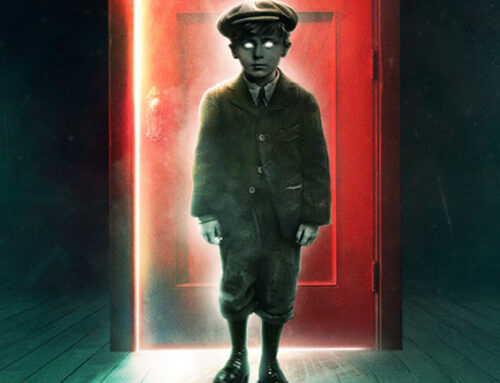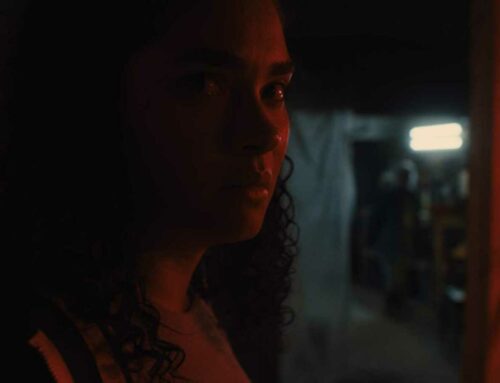Elisabeth Stranathan has been making her mark on immersive theatre for years now, getting her start with the fabled progenitor of extreme horror immersives, Blackout. Much of her recent work, however, has arisen out of her collaboration with Keight Leighn as one half of the creative duo, G8B4. Together they’ve developed a style of theatre all their own, an intimate, one on one approach that strips our notions of what constitutes a show to its bare fundamentals. The series began with #bedrUmplaI in 2018 and originally featured Leighn alongside Shayne Eastin (with Stranathan ultimately taking her place) in a freeform expression of spontaneity and creativity.
This was followed by LiVEPLAY, a remote show featuring Leighn on her own having a Skype conversation with her audience of one, probing questions of purpose and identity. The series has continued on with #bedrUmplaI 2 and even a horror entry that had the audience acting as hostage negotiator to free Stranathan from her demented kidnapper but given circumstances that need not be mentioned, remote shows are back in a big way and that has given birth to 444 Tempus Fugit, a spiritual successor to LiVEPLAY with Stranathan taking over at the helm.
It would be reductive to call 444 Tempus Fugit a rehash of LiVEPLAY, as the character and spirit of both shows reflect those of their creators, but it serves as a useful jumping off point as it shares much of the same structure and general theming. They both involve the pretense of a guide leading a traveler on an introspective journey but ultimately abandon that for a more authentic level of communication and both ask their audience to carry much of the burden of the performance. Stranathan might be the performer and you her audience but you’re the one who is going to be doing most of the talking as you’re asked to weigh in on heady matters ranging from identity and morality to slightly more frivolous topics like ghosts and childhood memories.
As with previous entries in this vein, 444 Tempus Fugit is a show about giving the audience a platform to express themselves and be heard and this is one area where Leighn and Stranathan differ stylistically. Whereas Leighn tends towards a more confrontational approach, questioning every thought breached, Stranathan will occasionally comment on your responses but is happy to move from question to question without much of a fight. This is one of the more striking features of Leighn’s approach but its absence isn’t necessarily a negative and keeps what can otherwise get to be a fraught experience more relaxed. A less controversial departure comes in the form of flow of consciousness writing prompts and emergent poetry that serve the show well by breaking up the wall of inquisition and inspiring different modes of thought.
The show’s initial scheduled run ended in April but Stranathan can still be contacted directly for reservations and with a ticket price just over $30 for a nearly 90 minute show with 50% of proceeds donated to Johns Hopkins Covid 19 Research & Response, it’s a show that’s worth seeing both for long-time fans of this style of theater and for anyone that is feeling isolated and in need of someone to listen intently to the thoughts that many of us having bouncing around in need of release. For fans of her previous work, there is a fair amount that feels recycled and I would like to see something more targeted in the future that could really explore one of the many topics touched upon here but it is nonetheless a style of performance that seems ideally suited to our current circumstances.







